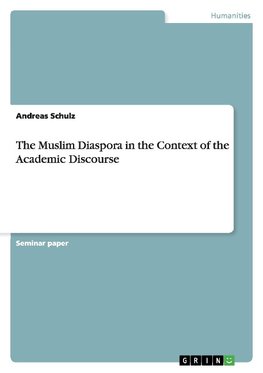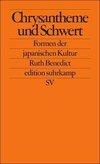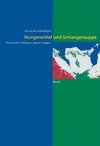
-
 Anglický jazyk
Anglický jazyk
The Muslim Diaspora in the Context of the Academic Discourse
Autor: Andreas Schulz
Seminar paper from the year 2016 in the subject Cultural Studies - Miscellaneous, grade: 1, University of Vienna (Kultur- und Sozialanthropologie), course: Home, Habitat and Diaspora, language: English, abstract: In the following I will discuss some general... Viac o knihe
Na objednávku
14.76 €
bežná cena: 16.40 €
O knihe
Seminar paper from the year 2016 in the subject Cultural Studies - Miscellaneous, grade: 1, University of Vienna (Kultur- und Sozialanthropologie), course: Home, Habitat and Diaspora, language: English, abstract: In the following I will discuss some general conceptual thoughts on the notion of diaspora, which could be useful for the discussion of the claim of an existing Muslim Diaspora. After the introduction I'd like to illustrate with social-science based literature on Germany and the USA thoughts on The Muslim Diaspora. Referring to this chapter I'd like to present arguments for and against the usage of the notion The Muslim Diaspora in social sciences. A reflection will sum up the ideas of the essay.
Many especially western socialized scholars speak about the Muslim Diaspora in Europe and the USA. In fact that the notion of diaspora has been politicized, many nationalist groups or even governments often use the concept of diaspora to pursue agendas of nation-state-building or controlling populations abroad. Because of this politicization of the notion, "scholars have argued that the term should be used with care and not regarded as an innocuous analytical concept" (Brubaker 2005, quoted in Faist 2010: 13).
Looking at the EU and the debate on a European comprehensive immigration policy, the term diaspora figures prominently in officially issued EU documents and that the concept has evolved along with efforts at migration control. In EU documents, "Diasporas are portrayed as networks of migrants with various legal links to the home country. By contrast, the language of UN documents revolves around 'transnational communities' as main actors in development policy." (Faist 2010: 19) But in the terms of the EU, Diasporas, as proverbial "seeds in the wind", "are thought to contribute to development in the countries of origin, without being burdened by the experience of traumatic dispersal." (ibid. 19)
- Vydavateľstvo: GRIN Verlag
- Rok vydania: 2016
- Formát: Paperback
- Rozmer: 210 x 148 mm
- Jazyk: Anglický jazyk
- ISBN: 9783668197404




 Nemecký jazyk
Nemecký jazyk 






